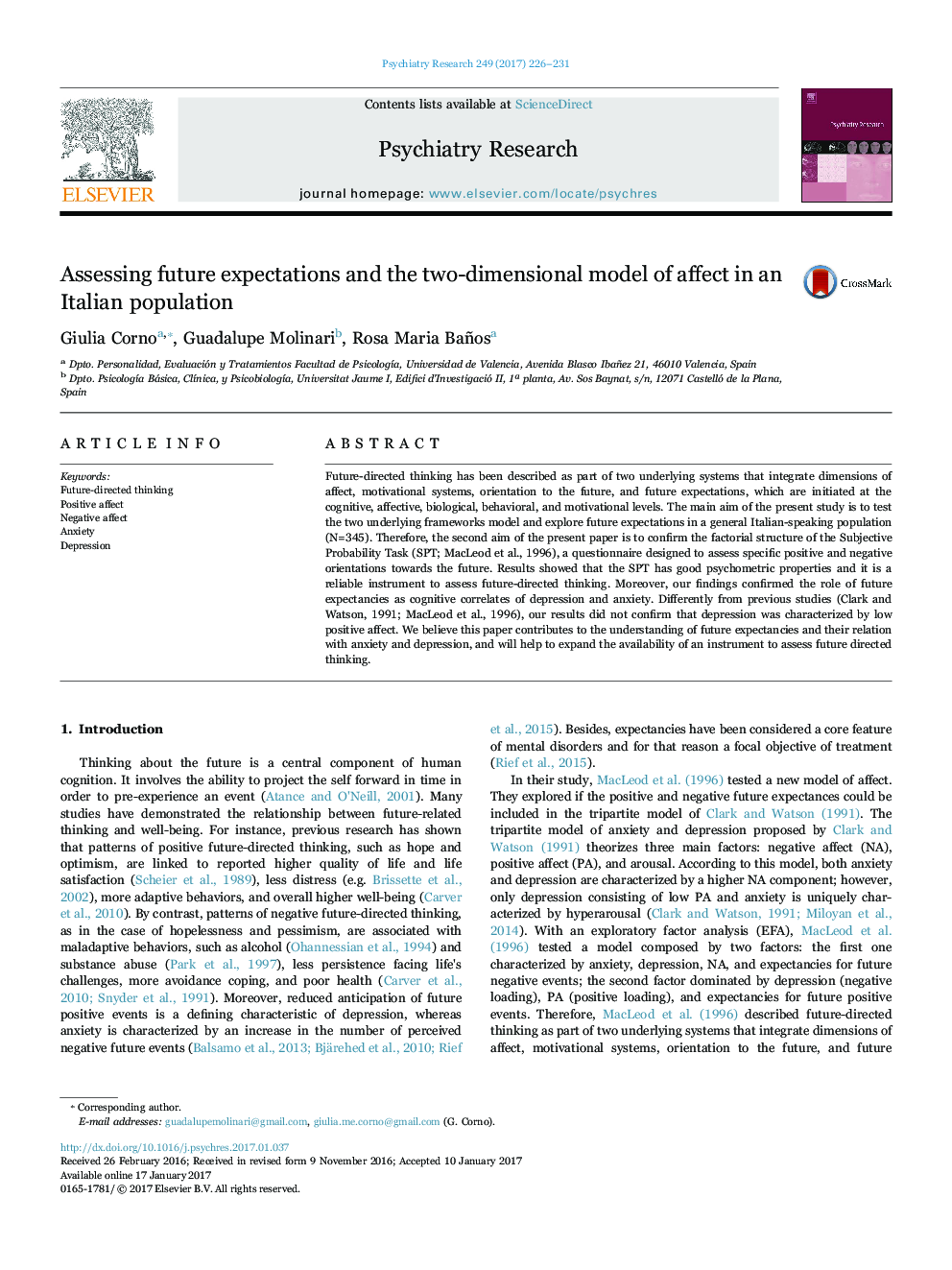| Article ID | Journal | Published Year | Pages | File Type |
|---|---|---|---|---|
| 4933730 | Psychiatry Research | 2017 | 6 Pages |
â¢Future-directed thinking's model is examined in Italian sample.â¢Factorial structure and psychometric properties of the Italian SPT are assessed.â¢SPT is a reliable instrument to assess future-directed thinking.â¢Results partially confirm the future-directed thinking's model.â¢These findings can feed the debate on the characterization of a model of affect.
Future-directed thinking has been described as part of two underlying systems that integrate dimensions of affect, motivational systems, orientation to the future, and future expectations, which are initiated at the cognitive, affective, biological, behavioral, and motivational levels. The main aim of the present study is to test the two underlying frameworks model and explore future expectations in a general Italian-speaking population (N=345). Therefore, the second aim of the present paper is to confirm the factorial structure of the Subjective Probability Task (SPT; MacLeod et al., 1996), a questionnaire designed to assess specific positive and negative orientations towards the future. Results showed that the SPT has good psychometric properties and it is a reliable instrument to assess future-directed thinking. Moreover, our findings confirmed the role of future expectancies as cognitive correlates of depression and anxiety. Differently from previous studies (Clark and Watson, 1991; MacLeod et al., 1996), our results did not confirm that depression was characterized by low positive affect. We believe this paper contributes to the understanding of future expectancies and their relation with anxiety and depression, and will help to expand the availability of an instrument to assess future directed thinking.
